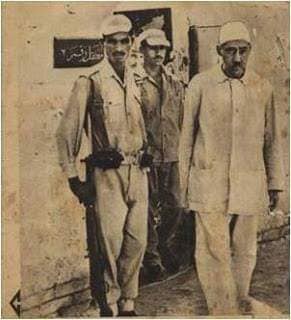|
Islamism
Islamism is a range of religious and political ideological movements that believe that Islam should influence political systems. Its proponents believe Islam is innately political, and that Islam as a political system is superior to communism, liberal democracy, capitalism, and other alternatives in achieving a just, successful society. The advocates of Islamism, also known as "al-Islamiyyun", are usually affiliated with Islamic institutions or social mobilization movements, emphasizing the implementation of '' sharia'', pan-Islamic political unity, and the creation of Islamic states. In its original formulation, Islamism described an ideology seeking to revive Islam to its past assertiveness and glory, purifying it of foreign elements, reasserting its role into "social and political as well as personal life"; and in particular "reordering government and society in accordance with laws prescribed by Islam" (i.e. Sharia). According to at least one observer (author Robin Wr ... [...More Info...] [...Related Items...] OR: [Wikipedia] [Google] [Baidu] |
Sayyid Qutb
Sayyid Ibrahim Husayn Shadhili Qutb (9 October 190629 August 1966) was an Egyptian political theorist and revolutionary who was a leading member of the Muslim Brotherhood. As the author of 24 books, with around 30 books unpublished for different reasons (mainly destruction by the state), and at least 581 articles, including novels, literary arts critique and works on education, Qutb is best known in the Muslim world for his work on what he believed to be the social and political role of Islam, particularly in his books ''Social Justice'' and (''Milestones''). His Masterpiece, magnum opus, (''In the Shade of the Qur'an''), is a 30-volume commentary on the Quran. During most of his life, Qutb's inner circle mainly consisted of influential politicians, intellectuals, poets and literary figures, both of his age and of the preceding generation. By the mid-1940s, many of his writings were included in the curricula of schools, colleges and universities. In 1966, he was convicted of ... [...More Info...] [...Related Items...] OR: [Wikipedia] [Google] [Baidu] |
Pan-Islamism
Pan-Islamism () is a political movement which advocates the unity of Muslims under one Islamic country or state – often a caliphate – or an international organization with Islamic principles. Historically, after Ottomanism, which aimed at the unity of all Ottoman citizens, Pan-Islamism was promoted in the Ottoman Empire during the last quarter of the 19th century by Sultan Abdul Hamid II for the purpose of preventing secession movements of the Muslim peoples in the empire. Pan-Islamism differentiates itself from pan-nationalistic ideologies, for example Pan-Arabism, by focusing on religion and not ethnicity and race. It sees the ummah (Muslim community) as the focus of allegiance and mobilization, including the Tawhid belief by the guidance of Quran and Sunnah's teachings. The major leaders of the Pan-Islamist movement were the triad of Jamal al-Din Afghani (1839–1897), Muhammad Abduh (1849–1905) and Sayyid Rashid Rida (1865–1935), who were active in anti-colon ... [...More Info...] [...Related Items...] OR: [Wikipedia] [Google] [Baidu] |
Muslim Brotherhood
The Society of the Muslim Brothers ('' ''), better known as the Muslim Brotherhood ( ', is a transnational Sunni Islamist organization founded in Egypt by Islamic scholar, Imam and schoolteacher Hassan al-Banna in 1928. Al-Banna's teachings spread far beyond Egypt, influencing various Islamist movements from charitable organizations to political parties. Initially, as a Pan-Islamic, religious, and social movement, it preached Islam in Egypt, taught the illiterate, and set up hospitals and business enterprises. It later advanced into the political arena, aiming to end British colonial control of Egypt. The movement's self-stated aim is the establishment of a state ruled by sharia law under a caliphate–its most famous slogan is "Islam is the solution". Charity is a major aspect of its work. The group spread to other Muslim countries but still has one of its largest organizations in Egypt, despite a succession of government crackdowns since 1948. It remained a fringe group i ... [...More Info...] [...Related Items...] OR: [Wikipedia] [Google] [Baidu] |
Salafi Movement
The Salafi movement or Salafism () is a fundamentalist revival movement within Sunni Islam, originating in the late 19th century and influential in the Islamic world to this day. The name "''Salafiyya''" is a self-designation, claiming a return to the traditions of the "pious predecessors" (), the first three generations of Muslims (the Islamic prophet Muhammad and the is companions then the , and the third generation, the ), who are believed to exemplify the pure form of Islam. In practice, Salafis claim that they rely on the Qur'an, the and the (consensus) of the , giving these writings precedence over what they claim as "later religious interpretations".Bin Ali Mohamed ''Roots Of Religious Extremism, The: Understanding The Salafi Doctrine Of Al-wala' Wal Bara'' World Scientific, 2015 p. 61 The Salafi movement aimed to achieve a renewal of Muslim life, and had a major influence on many Muslim thinkers and movements across the Islamic world. Salafi Muslims oppose ' (reli ... [...More Info...] [...Related Items...] OR: [Wikipedia] [Google] [Baidu] |
Rashid Rida
Sayyid Muhammad Rashīd Rida Al-Hussaini (; 1865 – 22 August 1935) was an Ulama, Islamic scholar, Islah, reformer, theologian and Islamic revival, revivalist. An early Salafi movement, Salafist, Rida called for the revival of hadith studies and, as a theoretician of an Islamic state, condemned the rising currents of secularism and nationalism across the Islamic world following the abolition of the Ottoman sultanate. He championed a global Pan-Islamism, pan-Islamist program aimed at re-establishing an Caliphate, Islamic caliphate. As a young hadith student who studied al-Ghazali and Ibn Taymiyya, Rida believed reform was necessary to save the Muslim communities, eliminate Sufist practices he considered heretical, and initiate an Tajdid, Islamic renewal. He left Syria to work with Muhammad Abduh, Abduh in Cairo, where he was influenced by Abduh's Islamic Modernism, Islamic Modernist movement and began publishing ''al-Manar (journal), al-Manar'' in 1898. Through ''al-Manar's'' popu ... [...More Info...] [...Related Items...] OR: [Wikipedia] [Google] [Baidu] |
Muslim World
The terms Islamic world and Muslim world commonly refer to the Islamic community, which is also known as the Ummah. This consists of all those who adhere to the religious beliefs, politics, and laws of Islam or to societies in which Islam is practiced. In a modern geopolitical sense, these terms refer to countries in which Islam is widespread, although there are no agreed criteria for inclusion. The term Muslim-majority countries is an alternative often used for the latter sense. The history of the Muslim world spans about 1,400 years and includes a variety of socio-political developments, as well as advances in the arts, science, medicine, philosophy, law, economics and technology during the Islamic Golden Age. Muslims look for guidance to the Quran and believe in the prophetic mission of the Islamic prophet Muhammad, but disagreements on other matters have led to the appearance of different religious schools of thought and sects within Islam. The Islamic conquests, wh ... [...More Info...] [...Related Items...] OR: [Wikipedia] [Google] [Baidu] |
Abul A'la Maududi
Abul A'la al-Maududi (; – ) was an Islamic scholar, Islamist ideologue, Muslim philosopher, jurist, historian, journalist, activist, and scholar active in British India and later, following the partition, in Pakistan. Described by Wilfred Cantwell Smith as "the most systematic thinker of modern Islam", his numerous works, which "covered a range of disciplines such as Qur'anic exegesis, hadith, law, philosophy, and history", were written in Urdu, but then translated into English, Arabic, Hindi, Bengali, Telugu, Tamil, Kannada, Burmese, Malayalam and many other languages. He sought to revive Islam, and to propagate what he understood to be "true Islam". He believed that Islam was essential for politics and that it was necessary to institute ''sharia'' and preserve Islamic culture similarly as to that during the reign of the Rashidun Caliphs and abandon immorality, from what he viewed as the evils of secularism, nationalism and socialism, which he understood to be the influen ... [...More Info...] [...Related Items...] OR: [Wikipedia] [Google] [Baidu] |
Islamic State
The Islamic State (IS), also known as the Islamic State of Iraq and the Levant (ISIL), the Islamic State of Iraq and Syria (ISIS) and Daesh, is a transnational Salafi jihadism, Salafi jihadist organization and unrecognized quasi-state. IS occupied significant territory in Iraq and Syria in 2013, but lost most of it in 2019. In 2014, the group proclaimed itself to be a worldwide caliphate, and claimed religious, political, and military authority over all Muslims worldwide, a claim not accepted by the vast majority of Muslims. It is List of designated terrorist groups, designated as a terrorist organisation by the United Nations and many countries around the world, including Muslim world, Muslim countries. By the end of 2015, its self-declared caliphate ruled an area with a population of about 12 million, where they enforced their extremist interpretation of Islamic law, managed an annual budget exceeding billion, and commanded more than 30,000 fighters. After a grinding co ... [...More Info...] [...Related Items...] OR: [Wikipedia] [Google] [Baidu] |
Caliphate
A caliphate ( ) is an institution or public office under the leadership of an Islamic steward with Khalifa, the title of caliph (; , ), a person considered a political–religious successor to the Islamic prophet Muhammad and a leader of the entire Muslim world (''ummah''). Historically, the caliphates were polities based on Islam which developed into multi-ethnic trans-national empires. During the medieval period, three major caliphates succeeded each other: the Rashidun Caliphate (632–661), the Umayyad Caliphate (661–750), and the Abbasid Caliphate (750–1517). In the fourth major caliphate, the Ottoman Caliphate, the rulers of the Ottoman Empire claimed caliphal authority from 1517 until the Ottoman caliphate was Abolition of the Caliphate, formally abolished as part of the Atatürk's reforms, 1924 secularisation of Turkey. An attempt to preserve the title was tried, with the Sharifian Caliphate, but this caliphate fell quickly after its conquest by the Sultanate o ... [...More Info...] [...Related Items...] OR: [Wikipedia] [Google] [Baidu] |
Islamic Revival
Islamic revival ('' '', lit., "regeneration, renewal"; also ', "Islamic awakening") refers to a revival of the Islamic religion, usually centered around enforcing sharia. A leader of a revival is known in Islam as a '' mujaddid''. Within the Islamic tradition, ''tajdid'' is an important religious concept, called for periodically throughout Islamic history and according to a sahih hadith occurring every century. They manifest in renewed commitment to the fundamentals of Islam, the teachings of the Quran and hadith (aka traditions) of the Islamic prophet Muhammad, the divine law of sharia, and reconstruction of society in accordance with them. In academic literature, "Islamic revival" is an umbrella term for revivalist movements in Islam, movements which may be "intolerant and exclusivist", or "pluralistic"; "favorable to science", or against it; "primarily devotional", or "primarily political"; democratic, or authoritarian; pacific, or violent. The Islamic revival of the late 2 ... [...More Info...] [...Related Items...] OR: [Wikipedia] [Google] [Baidu] |
Sharia
Sharia, Sharī'ah, Shari'a, or Shariah () is a body of religious law that forms a part of the Islamic tradition based on Islamic holy books, scriptures of Islam, particularly the Quran, Qur'an and hadith. In Islamic terminology ''sharīʿah'' refers to immutable, intangible divine law; contrary to ''fiqh'', which refers to its interpretations by Ulama, Islamic scholars. Sharia, or fiqh as traditionally known, has always been used alongside urf, customary law from the very beginning in Islamic history; has been elaborated and developed over the centuries by fatwa, legal opinions issued by mufti, qualified jurists – reflecting the tendencies of Schools of Fiqh, different schools – and integrated and with various economic, penal and administrative laws issued by Muslims, Muslim rulers; and implemented for centuries by Qadi, judges in the courts until recent times, when secularism was widely adopted in Islamic societies. Traditional Principles of Islamic jurisprudence, theory o ... [...More Info...] [...Related Items...] OR: [Wikipedia] [Google] [Baidu] |







